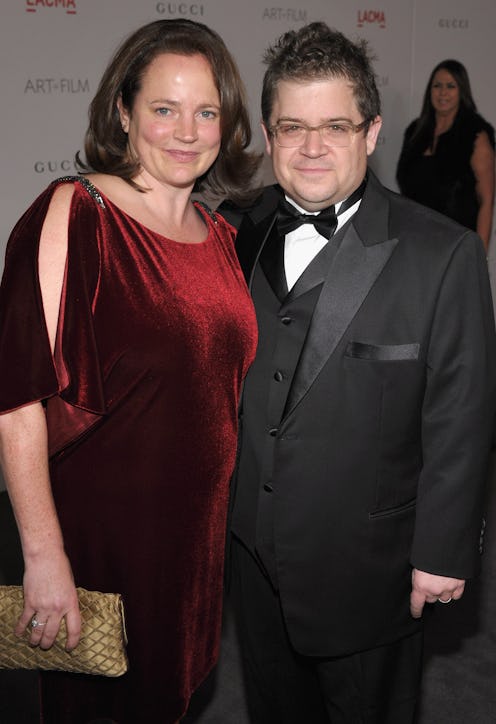If I had to choose one person to guide me through tragedy, it would be Patton Oswalt — no question. Of course, he came to fame as a talented comedian with a voice that speaks to literal millions, but lately it's been Oswalt's insights on the death of his wife Michelle McNamara that have resonated with me the most. His recent profile in The New York Times is especially touching. Somehow, even in the face of this unimaginable devastation, Oswalt has managed to use comedy to paint a realistic, almost visceral portrait of bereavement that I would imagine has been both illustrative and helpful to many of his fans, even those untouched by grief. The man has a gift, and I'm so grateful that he's been generous enough to share it with the world, even in the depths of his despair.
As you may know, McNamara tragically passed away at age 46 in April 2016, essentially out of nowhere, and Oswalt has been grappling with it ever since, both publicly and privately. I can't imagine even putting a sentence together after that kind of emotional loss — Oswalt and McNamara were married for more than a decade, and have a 7-year-old daughter, Alice — but Oswalt continues to unmoor me with his moving portraits of his wife. The aforementioned NYT interview made me smile through my tears, as he explained that he now calls into question the origin stories of the comic book heroes he loves. Speaking of his favorite comic books' portrayals of death, Oswalt said,
"If Bruce Wayne watched his parents murdered at 9, he wouldn’t become this cut hero. He would become Gotham’s most annoying slam poet. How about someone dies, and they just get fat and angry and confused? But no, immediately, they’re at the gym."
It would feel disrespectful to laugh at something like that, if it wasn't so perfectly, devastatingly true. "Gotham's most annoying slam poet" is such a vivid image, hilarious and tragic simultaneously for how accurate it is.
And Oswalt was no less stinting in the rest of the interview in his stark, vulnerable descriptions of what this kind of anguish feels like. He acknowledged that he hasn't been coping well, which I think is the bravest thing you can do. He said he found out "the hard way" that alcohol doesn't help and discovered that there are sensations even beyond the depression he'd previously experienced. Oswalt told NYT,
"Depression is more seductive. Its tool is: ‘Wouldn’t it be way more comfortable to stay inside and not deal with people?’ Grief is an attack on life. It’s not a seducer. It’s an ambush or worse. It stands right out there and says: ‘The minute you try something, I’m waiting for you.’"
Reading that, I can literally feel the truth squeeze my stomach, and I'll say again that I'm so appreciative that Oswalt shared. Mourning the loss of a loved one is such a deeply personal experience, and he doesn't owe anyone even a moment of explanation. And yet he's sharing nonetheless, giving his audience a window into everything he's been feeling — the good and the bad. The world is so lucky to have Oswalt and be graced with his insight on mourning, as heartbreaking as it is to read.
